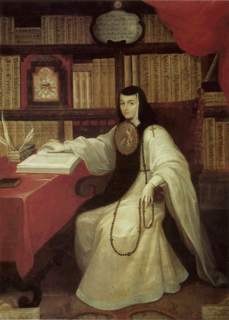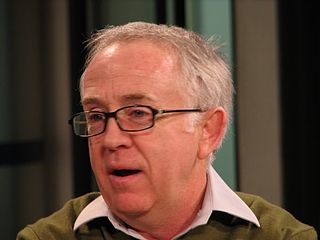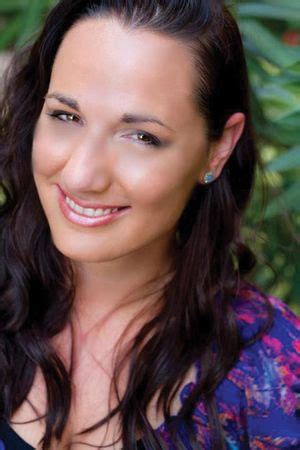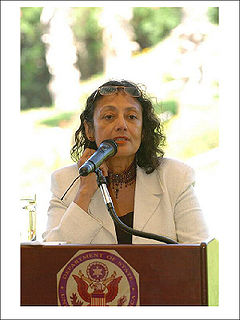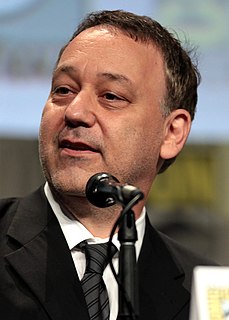A Quote by Juana Inés de la Cruz
I was not yet three years old when my mother determined to send one of my elder sisters to learn to read at a school for girls we call the Amigas. Affection, and mischief, caused me to follow her, and when I observed how she was being taught her lessons I was so inflamed with the desire to know how to read, that deceiving - for so I knew it to be - the mistress, I told her that my mother had meant for me to have lessons too. ... I learned so quickly that before my mother knew of it I could already read.
Related Quotes
I was raised in a religion that I never felt embraced me. That wasn't her fault. I had this amazing childhood. My mother is of her generation. If I'm going to ask her to accept me exactly as I am, I have to give her the same. She has read part of the book, but my sisters told her which chapters not to read!
My mother lived her life through movies and books - she read everything there was to read. And she read to me every night. I never went to sleep without her reading to me. And she fantasized about the book and she would talk about it, the place, and you would think that after she read the book and after she told you stories about it, that she had actually been there. I learned about story from her, and I learned the value of a great story, and the value of great characters.
I studied piano from the age of three. My grandmother taught piano. I stayed at her house during the day while my parents worked. I obviously wanted to learn to play. And so she asked if she could teach me, and my mother said don't you think she's too young. My grandmother apparently said no. So I could read music before I could read, and I really don't remember learning to read music. So for me it's like a native language. When I look at a sheet of music, it just makes sense.
My mother is a huge fan of my work. I told her about 'Coraline' long before the film was made, and she got the book and read it. She reminded me that when I was about five years old, I used to sit in the kitchen for hours and talk about my 'other' family in Africa, my other mother and father. I had totally forgotten that.
When I was a kid they didn't call it dyslexia. They called it you know, you were slow, or you were retarded, or whatever. What you can never change is the effect that the words 'dumb' and 'stupid' have on young people. I knew I wasn't stupid, and I knew I wasn't dumb. My mother told me that. If you read to me, I could tell you everything that you read. They didn't know what it was. They knew I wasn't lazy, but what was it?
One thing I did have under my belt was, my mother lost her mother when she was 11. She mourned her mother her whole life and made my grandmother seem present even though I never met her. I couldn't imagine how my mom could go on but she did, she took care of us, she worked two jobs and had four children. She was such a good example of how to conduct oneself in a time of grief. When I lost my husband, I tried to model myself as much as I could on her.
The idea of the book ["The Japanese Lover"] came in a conversation that I had with a friend walking in the streets of New York. We were talking about our mothers, and I was telling her how old my mother was, and she was telling me about her mother. Her mother was Jewish, and she said that she was in a retirement home and that she had had a friend for 40 years that was a Japanese gardener. This person had been very important in my friend's upbringing.
According to the three missed calls from her mother—who thought Madison had been kidnapped in the big, bad city and was now being held for an ungodly sum of money—the four text messages from her brother wondering if she knew how to navigate the beltway—because apparently little sisters couldn’t drive—and the voice mail from her father warning there was a problem with the reservations, she was late for brunch.
I was focused on building things from an early age. When I was about 3, our toilet broke, and my mother was ready to call the plumber. I told her I would fix it and asked her to get my Richard Scarry book 'How Things Work in Busytown.' Between the picture of a toilet and the text she read to me explaining how the parts worked, I fixed it.
My fourth mother, my godmother, she passed away a couple years ago - her name was Gwen. She was the theater director over at the gym where I grew up and learned about all those awesome things I told you about already. She was the one who taught me terms like "upstage" and "downstage," all those technical things about the art of what I do - how to breathe what I see, how to move. They were all her tactics, not anything learned or given to me through a theory, but rather by her natural abilities.
Mother Teresas detractors have accused her of overemphasizing Calcuttans destitution and of coercing conversion from the defenseless. In the context of lost causes, Mother Teresa took on battles she knew she could win. Taken together, it seems to me, the criticisms of her work do not undermine or topple her overall achievement.
In the summer of 2009, in the wake of a crisis in her life, my mother moved from San Diego to San Francisco to live with my 16-year-old daughter and me. My mother was 77. I was 51. Despite a chorus of skepticism from friends - who knew about my upbringing - I was determined to do what I could to help my mother.
